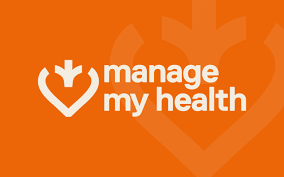
What is gout?
Gout is a form of arthritis, that comes as a result of the body having high levels of uric acid. It occurs in the joints of the person afflicted, causing severe pain and potential damage to the joints.
It is a serious life-long condition that not only contributes to a reduced life expectancy, but can also affect quality of life. Gout has prevented people’s inability to perform tasks at work, caring for family, participating in sport and tending to church responsibilities – just to name a few.
What causes gout?
Everyone has uric acid in their bodies, in fact, our bodies actually need it. The majority of people get rid of excess uric acid by passing it through their urine.
When urate levels in the body are high, that is when crystals start to form in the joints.
Several factors such as kidney disease, genetics, and diet can all contribute to the development of gout.
How is gout diagnosed?
Gout can be tested for in two ways:
- A sample of fluid taken from around the affected joint
- A blood test to measure the level of uric acid in your blood
Our people and gout
Pasifika and Māori people have genetics that prevent their kidneys from getting rid of uric acid, and as a result are more affected by gout than other demographic group in New Zealand.
Statistics show that Pasifika and Māori who are over the age of 20 are three times more likely to live with gout than other non-Pasifika/Māori people, and that those aged between 20 and 44 are seven times more likely. They also experience a higher frequency of gout attacks accompanied with joint inflammation and severe disease, and have higher hospitalisation rates.
How can I prevent a gout attack?
The most effective way to reduce likelihood of getting a gout attack is by taking preventative medicines.
Statistics show that during the period of 2018-2019, about 26 percent of Pasifika males hospitalized for gout, were not receiving preventative gout medicine in the six months leading up to their hospitalisation, 21 percent had never received it at all, and 6 percent were on it six months prior, but did not continue after discharge.
It is vital that you speak to your GP or healthcare professional about options for preventative gout medicine, to avoid its severities.
Diet is also another way to help prevent flare-ups
A low purine diet is the best way to prevent frequent gout attacks. It centres around vegetables, wholegrains and fruit, and limits the consumption of red meats, alcohol and seafood.
It it is encouraged to incorporate more of the following into your diet:
- Water
- Lite or skim milk
- Vegetables
- Fruit (vitamin C rich)
- Low-fat dairy products
- Whole grains
- Nuts
It is encouraged to reduce the following in your diet:
- Seafood (including canned fish)
- Alcohol
- Sugary drinks (soda, energy drinks, satchet or sweetened juices)
- Red meats
- Yeast spreads (like marmite and vegemite)
Exercise and maintaining a healthy weight
Being overweight is also a contributing factor to having high levels of uric acid, so it is important to stay active and find time to exercise where you can.
Just take it steadily, one day at a time – as losing weight too fast can actually lead to a gout attack.
For more information and resources on gout, visit the links below:



